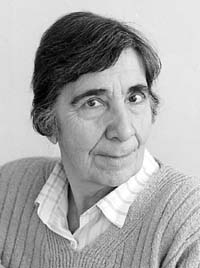First Printed Book By a Ukrainian

As we know, when Johann Gutenberg invented Europe’s first printing press in the mid-fifteenth century, book printing enjoyed wide currency in Western countries and became one of the crucial factors in the era of the Enlightenment. It was not until a hundred or so years later that the printing press came to Eastern Europe: for instance, in Moscow the first book was printed in 1563, and the Ostroh print shop was already working at the same time.
It is not widely known that long before this and shortly after Gutenberg came up with his invention, a book was printed in Rome (in Latin), titled The Prognostic Evaluation of the Current Year 1483 by Master Georgius Drohobych of Rus, Doctor of Philosophy and Medicine. This was the first book printed by a Ukrainian. There are only three copies of The Prognostic Evaluation left in the world today (not one in Ukraine), which have been circulating among European rarities and mentioned in the catalogues of incunabula for several centuries. For example, it is listed in the 1896 catalogue of a Munich antique company, “This book, the first by a Rus author, is quite rare and unique. What makes it especially important is not only the author but also the content” (quoted from Yury Duplenko, Ukrainian Studies, 2003).
Who was this “Master Georgius Drohobych from Rus, Doctor of Philosophy and Medicine?” Why was this book printed in, of all places, Italy? The author’s Ukrainian origin is proven by his sobriquet “Drohobych.” It is not known whether he himself adopted this pseudonym or, more likely, he was thus called abroad after the city he came from. For, in reality, Georgius Drohobych was Yury (Heorhy, Jerzy) Kotermak from the city of Drohobych, then part of the Kingdom of Poland. He was born in 1450 into the family of craftsman Mykhailo Kotermak. The family being poor, Yury lived in poverty throughout his life. Already a well- known scholar, he wrote in a letter, “I could achieve so much in science if I did not have to care about the most basic needs. Since I lay in the cradle, I have achieved everything through hard work and strenuous effort. Now, in the prime of youth, I bear all this quite easily, but the future inspires terror... What is the use of knowing all the sciences if one is poor and destitute?”
In his youth, Yury refused to take up his parent’s trade and decided to receive an education by entering Krakow University in 1468. The university’s library still keeps old manuscripts, including a “Book of Promotions” with a record that Yury from Drohobych was awarded the degree of bachelor in 1470 and that of master in 1473.
After gaining his master’s degree, Yury left Krakow for the renowned University of Bologna, one of the then centers of the European Renaissance. The young man was most interested in medicine, but those times required universal knowledge: he had first to master mathematics, philosophy, reach a sufficient command of Latin and Greek, and study poetry and rhetoric. Great importance was attached to astronomy and astrology, disciplines that were supposed to be linked closely to medicine.
Italian sources say that in the academic year 1481/1482 Heorhy Drohobych of Rusa became doctor of philosophy and was elected rector of the “University of Physic and Arts” by the students according to the then charter. This institution was one of the three universities that were part of the so-called Bologna General School. At the same time he was awarded the degree of doctor of medicine that he had long worked for.
Judging by the title, Reflections on the Purification of Urine, his doctoral thesis in medicine, was of a purely applied therapeutic nature. The paper abounded in astrology, as custom required, although Drohobych believed that the influence of stars was not a fatal and irreversible factor in health and medical care but just the indicator of a favorable or unfavorable time for certain medical procedures.
Simultaneously the previously mentioned Prognostic Evaluation was printed in Rome. This was a solid encyclopedia focusing on the danger of epidemics, on “shameful” diseases brought to Rome by numerous travelers, and on measures of prevention. Drohobych advised the civic fathers to take rational measures and residents to exercise extreme caution. The book also contains calculations of the calendar of celestial phenomena for various geographical regions. It is of special interest that Yury Drohobych made in this book the first-ever attempt to determine the geographic coordinates of some places in his remote, but not forgotten, homeland — Galician Rus, Podillia, and Voloshchyna, which then seemed to be almost on the outskirts of universe.
Later, in 1488, Drohobych became a professor at Krakow University and dean of its medical school. He delivered lectures on medicine and medical astrology in addition to teaching Oriental philosophy and poetry in which he was an expert. By that time, he had already received the title of the King’s Own Physician.
Although Yury Kotermak-Drohobych had traveled all over the world, mastered the attitudes and knowledge of European Renaissance, learned several old and new languages, and perhaps become a Catholic, he never stopped feeling that he was part of his nation. This is confirmed by the fact that in Krakow he took an active part in printing such Old Slavonic Orthodox books as Octave, Horologion, Flowery Triodion, et al. It is also known that among Drohobych’s pupils were natives of both Poland (including the young Nicolaus Copernicus) and Halychyna.
Yury Kotermak died, aged 44, in 1494 and was buried in Krakow. In conclusion, let us recall his lines from the foreword to The Prognostic Evaluation..., lines very typical of a Renaissance individual who boundlessly believed in Reason: “Our eyes are unable to fathom the sky above us, but we can easily fathom it with our Reason. We thus learn ends and causes: this opens the way to high expanses...”






